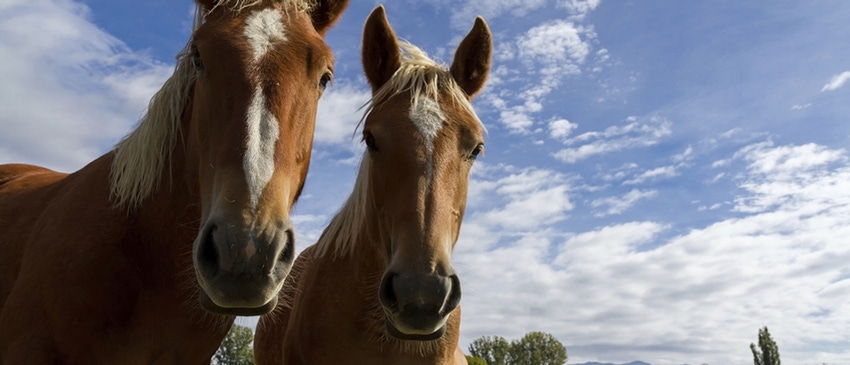Unique design could be example for developing next generation of vaccines against vector-borne diseases.
July 26, 2017

An effective vaccine that protects against all nine strains of African Horse Sickness Virus (AHSV) is a step closer, according to new research published in the journal Vaccine.
The study, led by the London School of Hygiene & Tropical Medicine and funded by the U.K.'s Biotechnology & Biological Sciences Research Council, used a type of vaccine that has all the benefits of a traditional vaccine, but with none of the associated risk factors. The study is among the first to report a vaccine for AHSV based on "reverse genetics" and highlights its great potential in controlling the disease.
African Horse Sickness is a devastating disease affecting species in the horse family. It causes severe respiratory problems, and approximately 90% of horses that catch it die within a week. AHSV is endemic to sub-Saharan Africa, although there have also been known outbreaks in Spain and Portugal. The biting midges that transmit the disease are found all across Europe, and there is concern regarding the influence of climate change on midge populations, the announcement said.
Many countries use a "live" vaccine to treat AHSV. These vaccines render pathogens harmless, vastly reducing their ability to infect a host; the current version for AHSV is considered unsafe, however. This is due to the possibility of the virus becoming infectious again due to mutations in the vaccine strains, which would cause African Horse Sickness in the host animal.
In 2016, the London School-led research team developed a reverse genetics system that enabled strains to mimic viruses, demonstrating their same abilities to enter host cells and initiate an immune response. However, unlike the natural virus, the vaccine strains are unable to replicate, rendering them harmless. This Entry Competent Replication-Abortive (ECRA) system allowed for the development of virus strains for all nine types of AHSV, and a successful mouse model displayed the potential for vaccine development.
In this latest study, researchers tested the effectiveness of a single vaccine strain and a "cocktail" of multiple ECRA-based vaccine strains in eight ponies. As found in the mouse model study, the vaccine viruses were able to enter the cell, triggering strong immune responses, but they were unable to replicate. None of the eight ponies suffered any adverse effects from the vaccine. When infected, all vaccinated ponies were protected from African Horse Sickness, and only the non-vaccinated ponies had clinical symptoms of virus infection.
Principal study investigator Polly Roy, professor of virology at the London School of Hygiene & Tropical Medicine, said, “The high volume of movement in the horse industry increases the risk of the introduction of exotic diseases such as African Horse Sickness. There are well-designed control measures for animal outbreaks in the U.K., but measures taken during such an epidemic, such as the restriction of movement, could cost the U.K. economy approximately £4 billion pounds.
“Using our patented reverse genetics system, the study findings demonstrated that ECRA vaccines triggered strong immune responses in ponies that protected them completely against the virus infection. Our unique and cost-effective vaccine design could act as an example for the development of next generation of vaccines against other vector-borne diseases that undermine the horse industry,” Roy added.
It is hoped that the development of a safe and effective AHSV vaccine can afford protection and prevent major impacts in the event of an outbreak in European countries. As the ECRA-developed vaccine does not require live and infectious materials, the vaccine would not only be cost efficient but could also be manufactured rapidly.
The team said further research is needed to determine the optimal dosage requirements and the longevity of the vaccine.
You May Also Like



